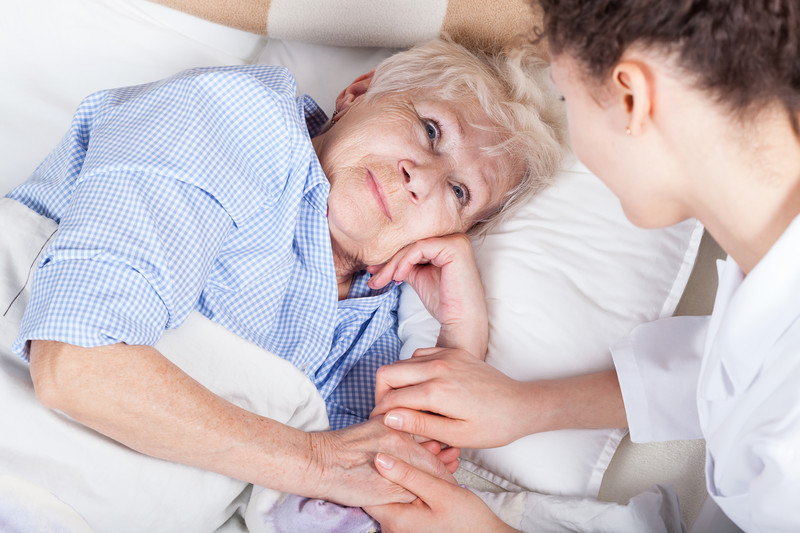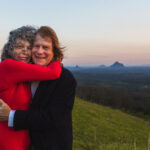“Terminal lucidity” is the term given to people who become unexpectedly lucid before they die. It is unexpected because their bodies are ravaged and their minds unresponsive. Some are mentally ill, demented, or in a comatose state and sometimes for many weeks.
I first heard about this phenomenon when I was in my twenties. My partner at that time was an orderly working at Royal Prince Alfred Hospital in Sydney. He described how he had observed patients, unconscious and dying, suddenly become energetic and completely present. At first, because he had conversed with these people, he assumed they were recovering. But the next day, when he dropped in to say hello, their bed was empty. On enquiring, he would learn they had died.
He was puzzled. Some had been unresponsive for weeks. But after a while, he came to the conclusion that it was quite common for people to have a “last hurrah” before they passed. Neither of us knew of any medical explanation for this strange occurrence.
Some people have described their pets rallying just before they died. After being listless for days, cats and dogs have come to their owners for a cuddle or curled up and looked into their owner’s eyes before passing.
We know that terminal lucidity has been around for hundreds of years. Shakespeare refer to it in Romeo and Juliet, Act V, Scene III. Romeo proclaims, while laying Paris in Juliet’s tomb:
How oft when men are at the point of death
Have they been merry which their keepers call
A lightening before death
With all our scientific and medical advancements, no one can explain how a deteriorated body and brain (confirmed by autopsy) can rally to participate in such lucidity before death. The only thing that the medical profession admits is that it does happen and is quite common. Many nurses and elderly carers have observed its occurrence.
Over the years, I have heard many stories from clients who have experienced terminal lucidity in their loved ones. However, I know it exists because I have experienced it myself.
In 1981, I was beside my grandmother who was dying. She had suffered deteriorating congestive heart failure for some years. When I was told she was dying, I travelled to the nursing home to be by her side. Her breathing was slow and heavy, and she looked like she was in a deep sleep. I sat by her side for two days and two nights.
On the first night she lapsed into unconsciousness, with long pauses between breaths and a hoarse sound coming from her throat. I panicked and called the night nurse. The nurse flew into action, giving her oxygen and some other treatment, which I don’t specifically recall. My grandmother’s breathing reversed to what it had been before and she appeared to remain in a coma.
The next day my grandmother stirred, soon becoming wide awake and lucid. She said, “I am in a funny predicament.” I asked her what she meant. She replied that she was dying. I didn’t argue with her. Instead, I reminded her how much my sisters and I treasured all the love, guidance and special experiences she and her husband, my grandfather, had given us. Between them, they had taught us to bake, to kill and clean chickens, to sow seeds and watch the strawberries, corn and other plants grow, to catch, scale and clean fish, to find and enjoy rock oysters, to play cards and board games, to behave with dignity and gratitude, and so much more. I thanked her for the love and protection she had given us—we had extremely dysfunctional parents and the love, attention and guidence of our grandparents was gold for us. Before she lapsed again into unconsciousness, she told me how much she had loved every minute of it.
That night, a different nurse was on night duty. I discussed the revival the previous night. Neither of us saw the point of continual revivals, delaying the inevitable, for which I now knew my grandmother was prepared. This time when her breaths were more and more delayed, we didn’t interfere. I held her hand, speaking to her softly while watching her slowly fade away.
What a privilege it was to be with her at the end. And I was so grateful for the minutes of lucidity which provided an opportunity for the two of us to reminisce and appreciate the experiences we’d shared.
Now I think of all those in nursing homes who, because of Covid-19, are denied their relatives at their bedside. Dying can be beautiful but the lack of loved ones at the bedside of those leaving the planet is hard for all. I pray that somehow this is rethought and changed, so the opportunity for these special moments at the end of a life are preserved.
One nurse summed it up after observing terminal lucidity in her patients while relatives were at their bedside. It remains a beautiful and mysterious gift.
NOTE:
If you would like to know more about terminal lucidity, the University of Virginia (UVA) has conducted significant research providing evidence of consciousness being independent of the brain and body.
At a conference in India in 2013, Dr Bruce Greyson, then head of the Department of Perpetual Studies at UVA, spoke about terminal lucidity and other research. Here is the link:








Recent Comments